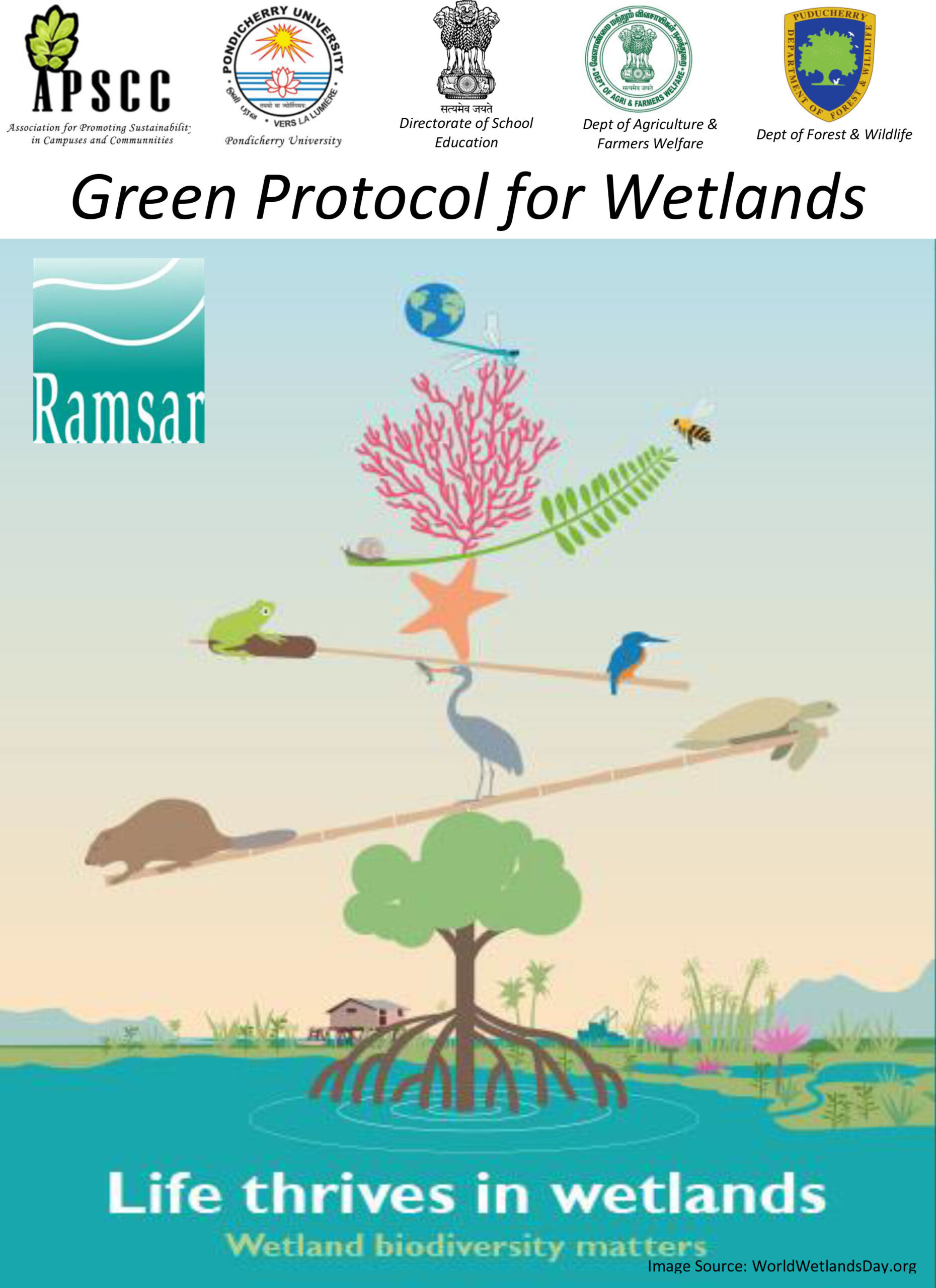
In a landmark event for environmental sustainability, Pondicherry University unveiled the ‘Green Protocol for Wetlands’ under the joint leadership of Prof. Gurmeet Singh, Vice-Chancellor of Pondicherry University, and Smt. Vanjulavalli Sridhar, IFS, Deputy Conservator of Forests and Wildlife. The launch was graced by Dr. Ramakichenin Balagandhi, Director, Department of Agriculture and Farmers Welfare, Prof. S. Balakrishnan, Director of Studies, Pondicherry University, Dr. B. Chitra, Registrar, Pondicherry University, Prof. K. V. Devi Prasad, Dean, School of Life Sciences, Dr. Golda Edwin, Executive Director, APSCC, Prof. A. Shahin Sultana, Dean, Students Welfare, Prof. R. Nalini, HoD, Department of Social Work, Er. N. Sankaramourthy, Executive Engineer, and Dr. M. Nandhivarman, Coordinator, Office of Green Campus
About the ‘Green Protocol for Wetlands’
The protocol, designed as a roadmap for wetland conservation, is organized under five key strategies:
1. Wetland Rehabilitation Strategies: Restoring ecological health and functionality of degraded wetlands.
2. Community Participation: Engaging local communities and students as stakeholders in conservation efforts.
3. Stormwater Drain Management: Improving drainage systems to minimize pollution and maintain wetland health.
4. Buffer Zone Sustainability: Establishing sustainable practices in areas surrounding wetlands to prevent encroachment and degradation.
5. Action Plan for Water Bodies: Creating comprehensive, actionable steps for preserving and managing wetland ecosystems.
Purpose and Vision
The protocol serves as a call to action for students and the community, aiming to foster collective responsibility for the protection and sustainability of wetlands. Built on foundational conservation principles, the protocol seeks to raise awareness and inspire active participation in safeguarding these critical ecosystems.
Engaging the Community: Wetland Awareness Initiatives
As part of the broader effort to sensitize the public, particularly young minds, a series of initiatives has been planned:
1. Drawing Competition: In collaboration with Thiru. Rudra Goud, Director of the Department of School Education, a drawing competition themed ‘Wetlands and Water’ will engage over 4500 participants from more than 400 public schools. This activity aims to instill awareness and creativity among students.
2. Wetland Conservation Network: A ‘Wetlands Mitras’ (Wetland Friends) network is being developed to catalyze the transformation of students and communities. This network will emphasize the role of wetlands in mitigating climate change and sustaining biodiversity.
The launch of the ‘Green Protocol for Wetlands’ marks a significant step towards environmental stewardship and wetland conservation. By uniting students, educators, community members, and policymakers, this initiative highlights the collective effort required to protect these vital ecosystems. Wetlands are not merely water bodies; they are lifelines for biodiversity, climate stability, and human well-being. The ‘Green Protocol for Wetlands’ is a promising stride toward securing these invaluable resources for future generations.
